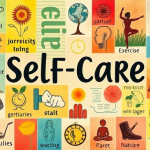
The Ultimate Guide to Health & Wellness: Tips for a Better Life
How Nutrition Impacts Your Health & Wellness
Nutrition plays a crucial role in maintaining good health. A balanced diet provides essential nutrients that help your body function properly. Consuming a variety of fruits, vegetables, lean proteins, and whole grains can boost your immune system, improve energy levels, and maintain a healthy weight. Proper nutrition also influences cognitive function and mental health, supporting a more positive mood and better sleep. Eating nutrient-dense foods is not just about looking good; it’s about feeling good and thriving in everyday life.
The Importance of Regular Exercise for Mental and Physical Health
Exercise is one of the cornerstones of health and wellness. Engaging in regular physical activity benefits both your body and your mind. Whether it’s walking, running, swimming, or strength training, exercise helps maintain a healthy heart, regulates weight, and strengthens muscles. But it’s not just the body that benefits—exercise boosts the production of endorphins, which are chemicals in the brain that help improve mood and reduce stress. A regular fitness routine can improve sleep patterns, increase energy levels, and even enhance cognitive function.
How Hydration Affects Your Health & Wellness
Staying hydrated is essential for optimal health. Water is the medium through which vital nutrients are delivered to cells, and it also plays a role in temperature regulation, joint lubrication, and waste elimination. Dehydration can lead to fatigue, headaches, and diminished cognitive abilities. By drinking enough water, you not only support your body’s vital functions but also improve skin health, digestion, and overall well-being. It’s a simple yet powerful step to maintaining your health and wellness every day.
Mental Health: The Foundation of Health & Wellness
Mental health is as important as physical health when it comes to overall wellness. Chronic stress, anxiety, and depression can negatively impact your physical well-being, leading to issues like sleep disturbances, high blood pressure, and digestive problems. By incorporating mental wellness practices such as meditation, deep breathing, or talking to a therapist, you can significantly reduce the effects of stress and improve your emotional health. Prioritizing mental health ensures a balanced, fulfilling life.
The Role of Sleep in Health & Wellness
Sleep is a vital component of health and wellness. When you sleep, your body heals, regenerates, and refreshes itself for the day ahead. Poor sleep quality can lead to a variety of health problems, including weakened immunity, cognitive decline, and even weight gain. To optimize your sleep, maintain a regular sleep schedule, create a calming bedtime routine, and avoid stimulants like caffeine before bed. Quality sleep is not just about quantity; it’s about deep, restorative rest that leaves you feeling energized.
How Stress Management Contributes to Wellness
Chronic stress can be detrimental to both your body and mind. It can lead to high blood pressure, heart disease, anxiety, and even digestive issues. Learning how to manage stress effectively is a critical component of maintaining good health and wellness. Techniques such as mindfulness, yoga, journaling, and engaging in hobbies can help reduce stress levels. By finding healthy ways to cope with stress, you can enhance your emotional resilience and overall well-being.
The Power of Positive Thinking for Health & Wellness
Your mindset has a profound impact on your health. Positive thinking and maintaining an optimistic outlook can improve your overall wellness by boosting your immune system, lowering stress levels, and promoting healthier behaviors. When you practice gratitude, set achievable goals, and visualize success, you not only improve your mental health but also increase your chances of living a longer, more satisfying life. Cultivating a positive mindset is an empowering step toward a healthier future
The Benefits of Holistic Health Approaches
Holistic health focuses on the whole person—body, mind, and spirit—rather than just treating individual symptoms. It involves practices such as acupuncture, chiropractic care, aromatherapy, and herbal medicine, all of which aim to restore balance and harmony within the body. By integrating holistic methods into your wellness routine, you can address the root causes of physical and mental ailments and experience improved overall health. A holistic approach emphasizes prevention, natural healing, and personal empowerment.
How to Build a Sustainable Healthy Routine
Creating a sustainable healthy routine involves making long-term changes rather than quick fixes. It’s about adopting habits that support your physical and mental health every day. This could include eating nutritious meals, exercising regularly, getting enough sleep, and practicing mindfulness. Building a routine doesn’t have to be overwhelming. Start small, set realistic goals, and gradually incorporate healthy habits into your daily life. The key is consistency and a balanced approach to wellness that lasts a lifetime.
Self-Care Practices for Health & Wellness
Self-care is a vital part of maintaining health and wellness. It’s not just about pampering yourself, but about taking intentional actions to nourish your body and mind. This could include activities like taking a warm bath, reading a book, or going for a walk in nature. Self-care also involves setting boundaries, saying no when necessary, and prioritizing your mental and emotional well-being. By consistently engaging in self-care, you can reduce stress, improve mood, and foster overall health.
The Importance of Regular Health Check-Ups
Regular health check-ups are an essential part of staying on top of your wellness. By seeing a doctor or healthcare provider regularly, you can detect potential health issues early and take proactive steps to prevent them. These check-ups often include screenings for blood pressure, cholesterol, and other important markers that influence overall health. A routine check-up is an opportunity to ask questions, receive advice, and ensure that you’re maintaining good health habits.
How Healthy Relationships Support Wellness
Your social relationships significantly impact your health and wellness. Strong, supportive relationships contribute to emotional well-being and provide a sense of belonging and purpose. Positive social interactions can help reduce stress, boost self-esteem, and promote a healthier lifestyle. It’s essential to nurture your relationships with family, friends, and community members, as having a solid support system can greatly enhance your mental and emotional health.
The Role of Supplements in Health & Wellness
Supplements can play an important role in supporting overall health and wellness, especially if your diet lacks certain nutrients. While food should always be your primary source of nutrients, supplements can help fill in the gaps. Common supplements include multivitamins, omega-3 fatty acids, probiotics, and vitamin D. However, it’s important to talk to a healthcare professional before adding any supplements to your routine to ensure they’re appropriate for your specific health needs.
How Detoxing Can Improve Health & Wellness
Detoxing involves eliminating toxins from your body to enhance its natural ability to heal and function optimally. A well-balanced detox plan can help cleanse your digestive system, improve skin health, and boost energy levels. Detoxing can include dietary changes, such as drinking more water, eating whole foods, or trying intermittent fasting. While it’s essential not to overdo detoxing, when done properly, it can rejuvenate your body and support overall wellness.
The Connection Between Health & Wellness and Spirituality
Spirituality can play a significant role in health and wellness by providing a sense of purpose, peace, and grounding. Whether through religious practices, meditation, or connecting with nature, spirituality can foster emotional balance and mental clarity. Spiritual practices promote mindfulness, reduce stress, and encourage compassion toward oneself and others. Integrating spirituality into your wellness routine can nurture the mind, body, and spirit, creating harmony and inner peace.
The Impact of Technology on Health & Wellness
While technology has greatly advanced healthcare, it also plays a role in health and wellness. Apps for fitness tracking, meditation, and sleep monitoring help individuals stay on track with their health goals. Wearables like smartwatches can monitor heart rate, steps taken, and even stress levels. However, excessive screen time can negatively impact sleep and mental health. Balancing technology use with real-life activities and personal interactions is key to ensuring it positively influences your health and wellness.
The Significance of Mental Resilience in Health & Wellness
Mental resilience is the ability to bounce back from challenges, setbacks, or adversity. It’s an essential quality for maintaining health and wellness, especially in times of stress or uncertainty. Building mental resilience involves developing coping strategies, maintaining a positive mindset, and learning from difficult experiences. By strengthening your mental resilience, you can better manage life’s challenges and maintain both mental and physical well-being.
The Benefits of a Plant-Based Diet for Health & Wellness
A plant-based diet focuses on consuming whole, unprocessed plant foods, including fruits, vegetables, legumes, and grains. Studies have shown that plant-based diets can improve heart health, lower cholesterol, and reduce the risk of chronic diseases. They are also rich in fiber, antioxidants, and vitamins that support overall wellness. By reducing or eliminating animal products, many people experience weight loss, better digestion, and increased energy levels, all of which contribute to a healthier life.
Why Preventative Health Measures Matter
Preventative health measures, such as vaccinations, screenings, and lifestyle changes, are critical to maintaining health and preventing diseases before they occur. By making healthy lifestyle choices and regularly visiting a healthcare provider, you can reduce your risk of chronic conditions like diabetes, heart disease, and certain cancers. Prevention is always better than cure, and taking proactive steps can help you live a longer, healthier life without the burden of avoidable health issues.
The Role of Fitness in Longevity and Quality of Life
Staying fit isn’t just about looking good; it’s about ensuring a longer, healthier life. Regular physical activity helps maintain mobility, flexibility, and strength as you age. It also plays a crucial role in preventing age-related conditions such as osteoporosis, arthritis, and cardiovascular diseases. By making fitness a priority, you enhance not just your lifespan but the quality of life you experience. Active individuals tend to enjoy more independence, vitality, and mental clarity in their later years.











